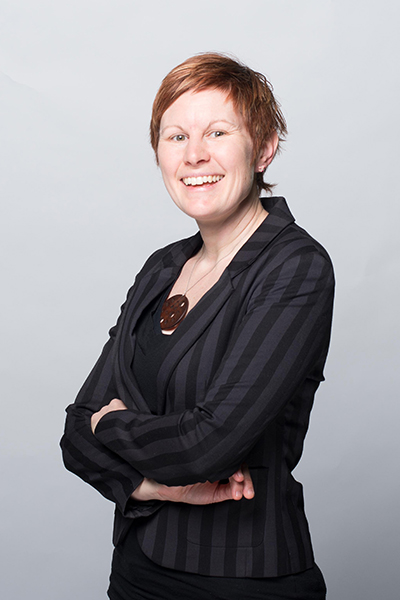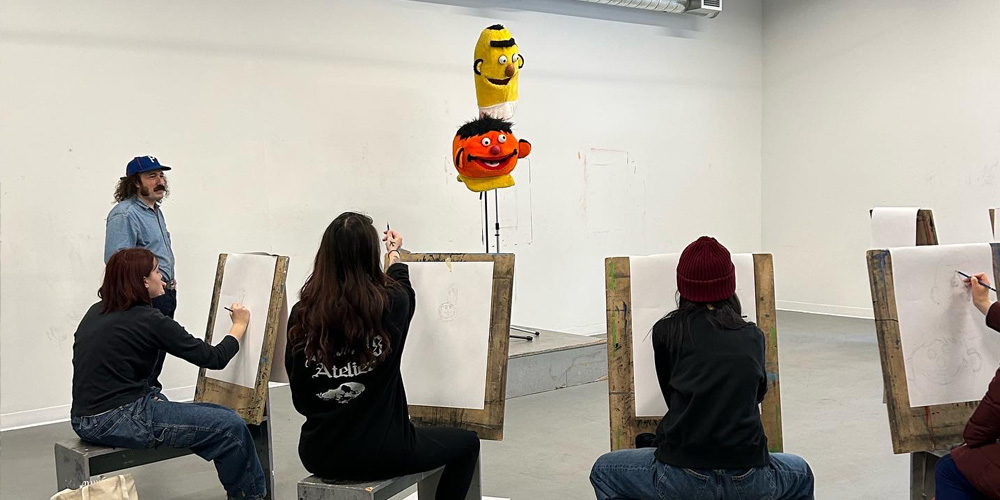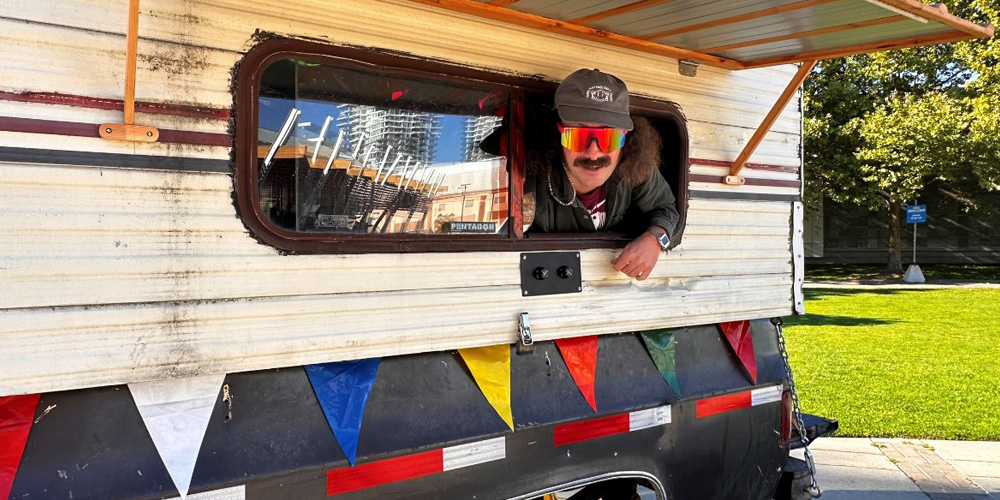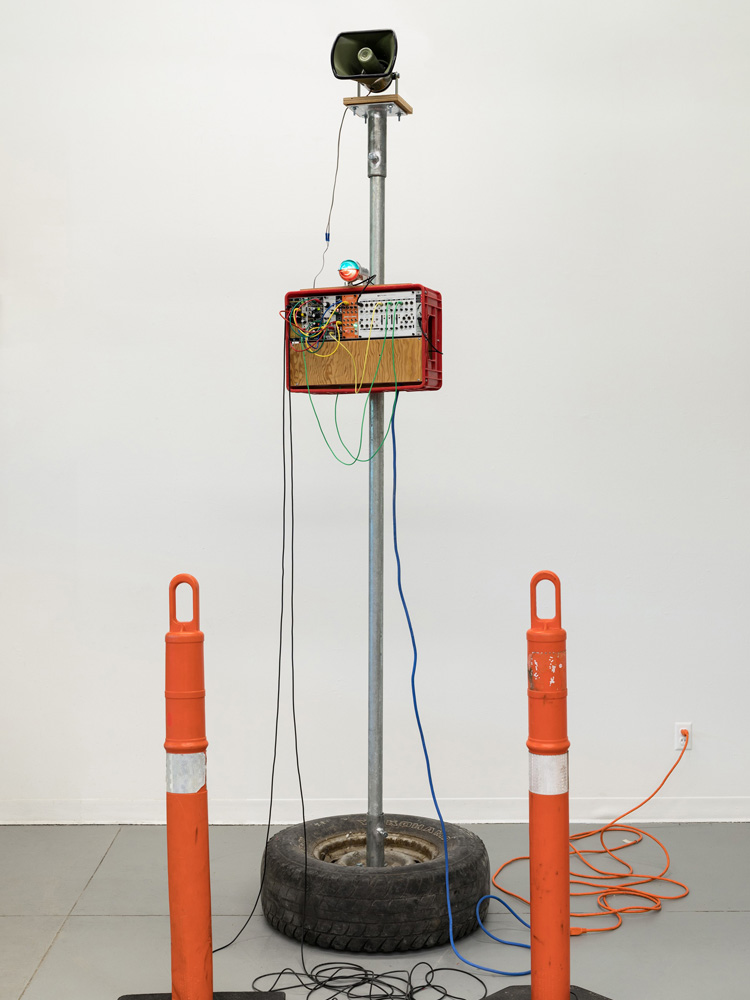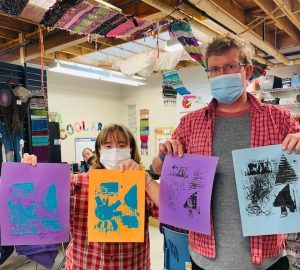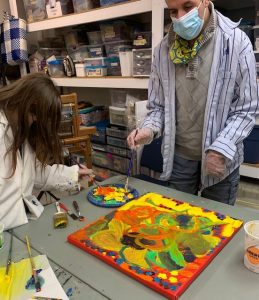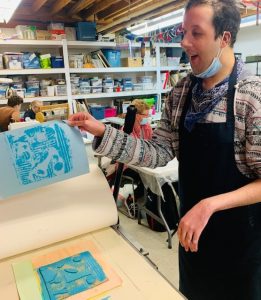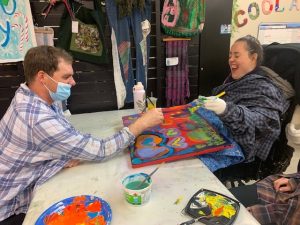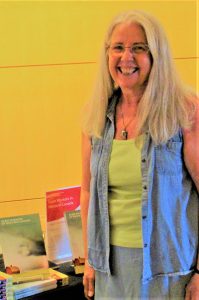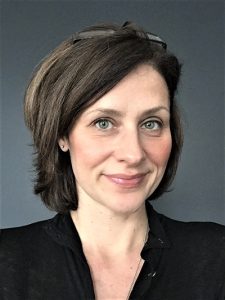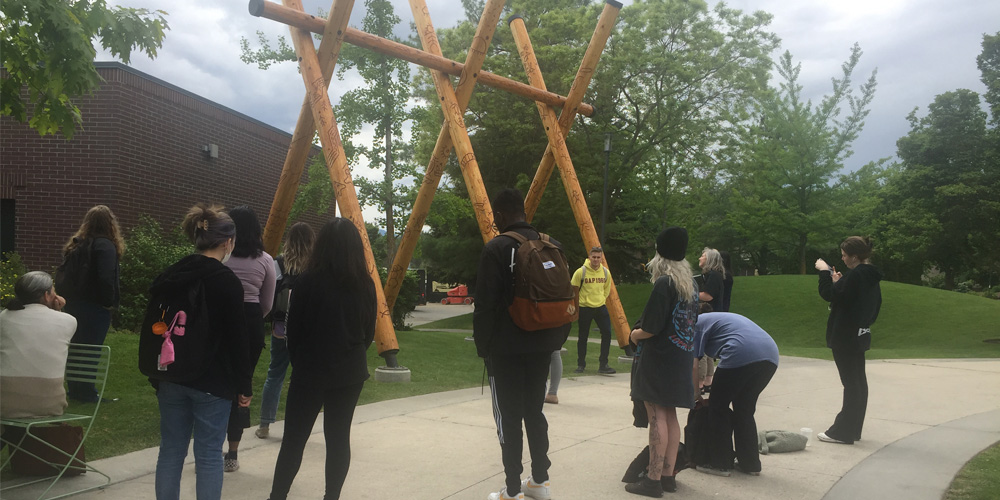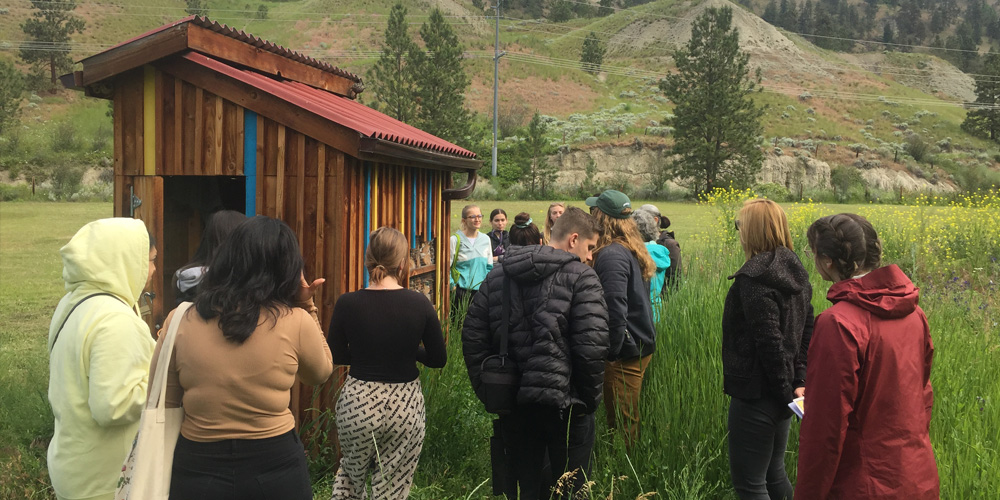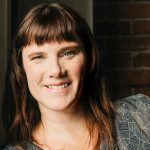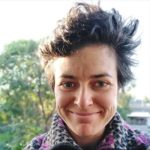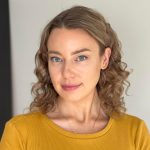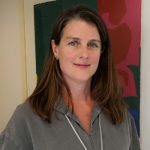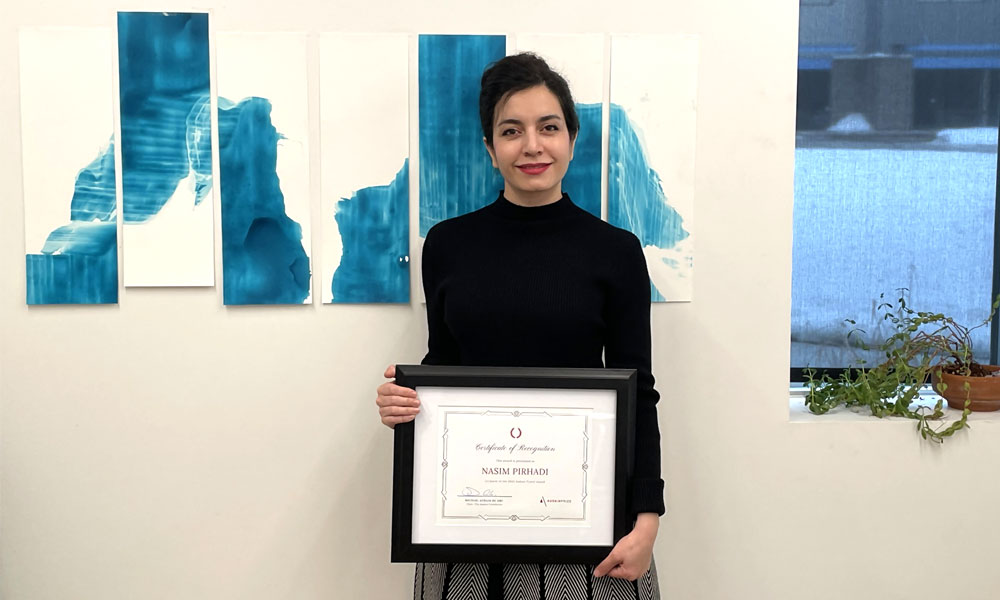The 2021-22 recipient of the FCCS Teaching Excellence and Innovation Award is Patrick Lundeen who received this award on the basis of students support and teaching evaluations. Lundeen teaches in the Bachelor of Fine Arts program, offering courses in two-dimensional art practices, drawing and sculpture.
This award is designed to recognize faculty members for teaching approaches that develop experiential learning, interdisciplinarity, internationalization, undergraduate research and scholarship.
Lundeen’s students say that he is very encouraging to everyone in class, and is always there if anyone needs a hand. He prompts them to dig deeper by asking questions about their ideas, and gives genuine feedback.
Lundeen says that his basic teaching philosophy is that he there to guide students to cultivate their own creativity, interests/ideas and working discipline. “In many of my classes I am called to teach technical skills – yet I feel that even as I am teaching skills, I am mostly concerned with trying to help students figure out what they have that is interesting to communicate and how to best communicate it.”
This is what being an artist is about – a good artist is a person that has interesting ideas, their ideas work or are relevant within the time in history that they are being presented and they can effectively use a medium to communicate these ideas. He also works to introduce students to the local art community and develop a working discipline which are both necessary elements to continue to make art once they leave school.
Lundeen feels that often as one teaches it can seem that what you are doing goes mostly unnoticed, especially in fine arts which is a slow process where one’s development and growth happens incrementally over time and is not easily quantified through tests scores and other evaluations.
“When I think back to my own studies, sometimes the most important things that I learned from instructors was not obvious at the time,” he says. “It can take years for ideas to sink in and you may not even get the chance to apply what you learned until after you leave school. At some point, you will be working in your studio, and it will dawn on you – this is what they were talking about.”
When asked why he wanted to teach at a university, Lundeen says that he didn’t set out to enter academia, he simply wanted to be an artist – which he still is – yet teaching has enabled him to obtain the resources he needs to keep making work while earning a living talking about what interests him the most.
“Working at the university nourishes my own creativity and represents an opportunity to give back to the community through helping other artists grow.”
He has a thriving art practice which is evident with a number of recent exhibitions and projects including CHEAP! at the Kelowna Art Gallery, and as the 2022 City of Kelowna Artist in Residence with his project, HAPPY DAY FREE GIFT TRUCK.
“My artworks are an attempt to deal with the horrors of everyday life in a humorous, and hopefully, entertaining way. I try to create art objects that are surprising and original and that cause a viewer to rethink what they already know,” he says.
He likes to push the envelope of what can be accepted in a gallery space and to make art that tests people and takes them out of their comfort zone.
“My artworks can be loud, overly bright, busy and move. Often they will make a viewer laugh – and feel uncomfortable at the same time.”
